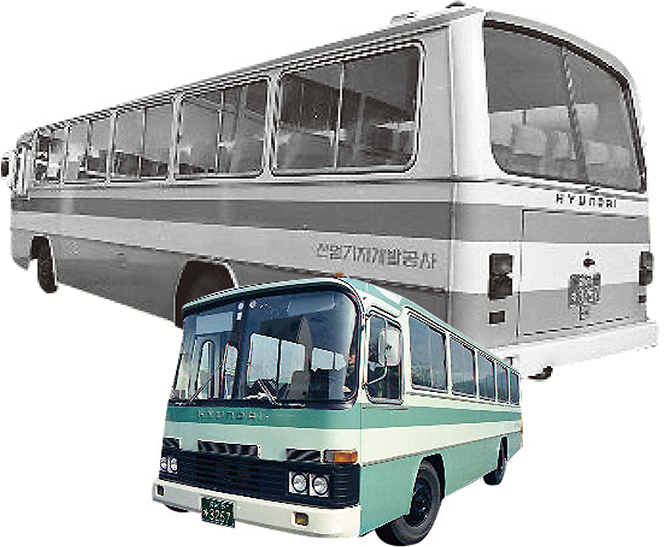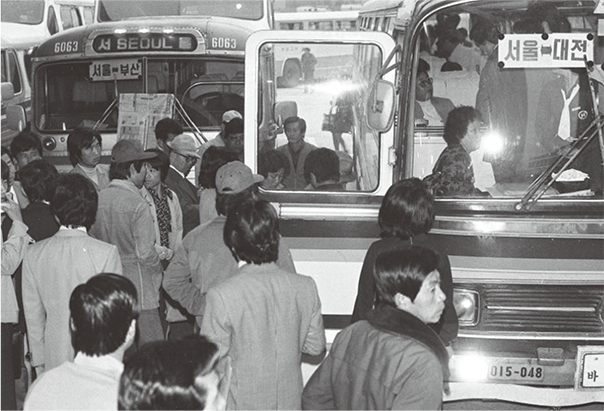K-water’s Water Story: Water Stream
50th Anniversary Series of K-water Headquarters' Relocation to Daejeon
A bond forged through unwavering dedication with Daejeon
With the relocation of the headquarters to Daejeon, life away from home began. The commuter bus and company housing offered comfort and relief from the challenges of the day. As relocated employees settled, Daejeon came alive. K-water's golden age ushered in a time when it was the most desirable employer for any man hoping to impress his future in-laws.
Writeup by Park Jae-hyun, Public Relations Dept./K-water Photos by Jegal Moon-pil, Public Relations Dept., K-water, Daejeon Metropolitan City
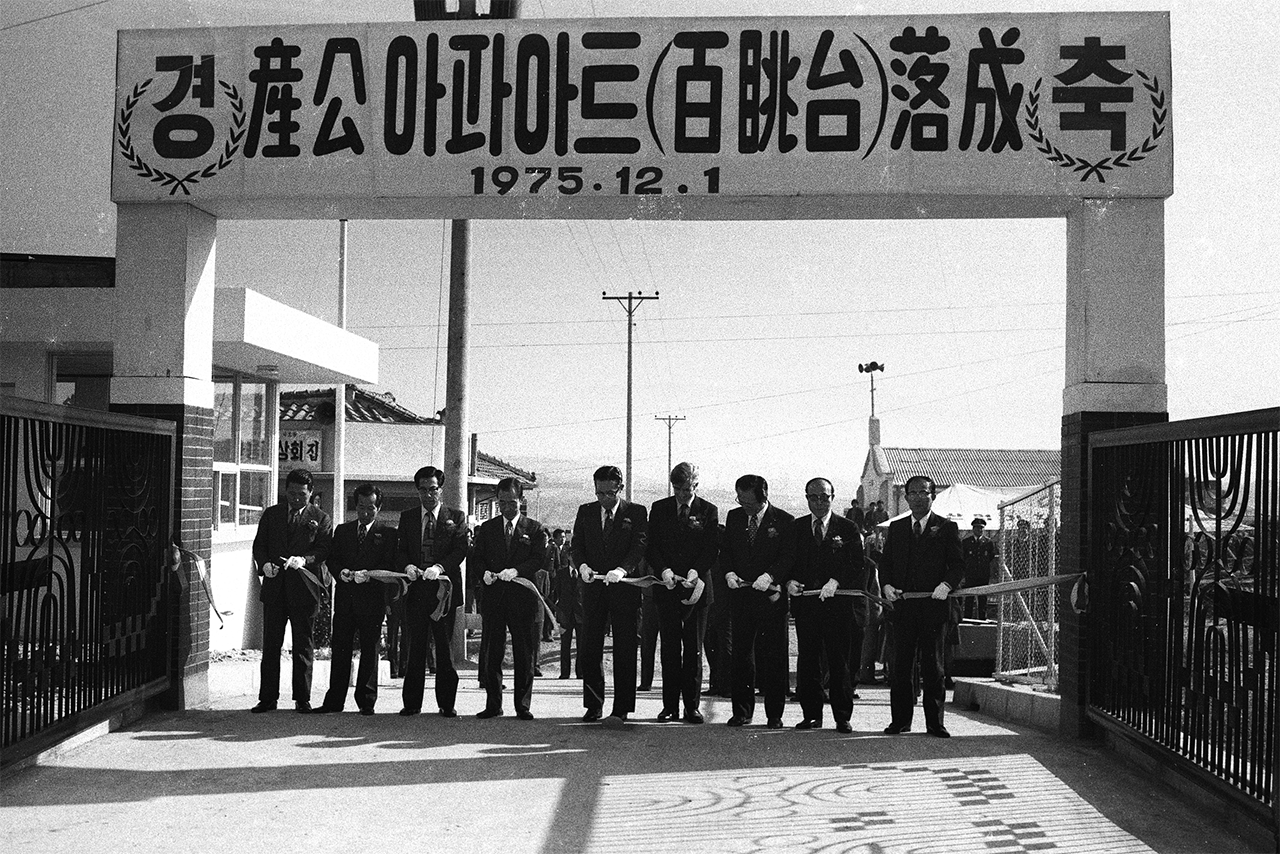
Be it moving to inns or renting alone, employees had laundry as their biggest headache.
News of the headquarters' relocation to Daejeon sent shockwaves among employees. At that time, 309 employees had their families living in Seoul. Leaving the golden city of Seoul for the countryside did not make any financial sense. Employees had to persuade their spouses whom they would see only on weekends, or families who could never move to Daejeon with them, to join them. During this process, some of the employees who had been with the company since its founding also left.
As time passed, the Daejeon headquarters era dawned on October 15, 1974. Accommodations posed an immediate challenge. Some employees found temporary lodging at inns, with others choosing to rent alone. Majority of employees had to travel to Seoul every weekend to be with their families who remained there. The biggest challenge was dealing with the clothes and laundry they had been wearing for a whole week. On weekends, employees taking the train and bus to Seoul looked like peddlers carrying their wares.
To ease the commute of its employees, K-water introduced commuter buses running from Daejeon to Seoul on Saturday afternoons and from Seoul to Daejeon on early Monday mornings. Despite this effort, however, employees were still unable to find stability in their lives. One by one, the employees who had moved to Daejeon began to resign.
Renowned for its premium luxury housing "Baekjodae"
Employees grew weary of the constant commuting between Seoul and Daejeon. As such, construction of employee housing was urgently needed. Then, CEO Ahn Gyeong-mo briefed President Park Chung-hee on the plans to construct company housing. President Park replied that he fully understood the situation and told them to build a housing complex as they wished.
The area around the Hongdo-dong (now Yongjeon-dong) area was chosen as the site for the housing complex. Construction of the six buildings including Building A for the CEO and executives, Buildings B, C, and D for employees with families, and Building E for single persons began in April 1975 with the site preparation and construction work. The housing complex was completed on December 1, 1975. The addition of ancillary facilities such as barber shop, children's playground, and convenience store helped relieve the hardships of employees who were weary of living away from home.
The housing complex was named "Baekjodae" (Hundred-View Terrace), and a monument was erected. The name was derived from the Baekje (百濟) characters "baek" (百) meaning "one hundred" and "jo" (眺) meaning "to gaze upon," symbolizing "a village where workers engaged in national land development projects reside, overlooking the entire former Baekje territory from the old Baekje’s central area.”
Baekjodae was constructed using the most advanced building techniques of the time. Impressed by the well-crafted housing complex, a local newspaper even ran an article calling the well-built house a luxury apartment. A group of women gathered at the apartment complex, eager to take a look at the apartments. The employees liked the cutting-edge apartments. Some employees sold their houses in Seoul or sublet them and moved with their families. Thanks to Baekjodae, employees have begun to feel a sense of stability in their lives.
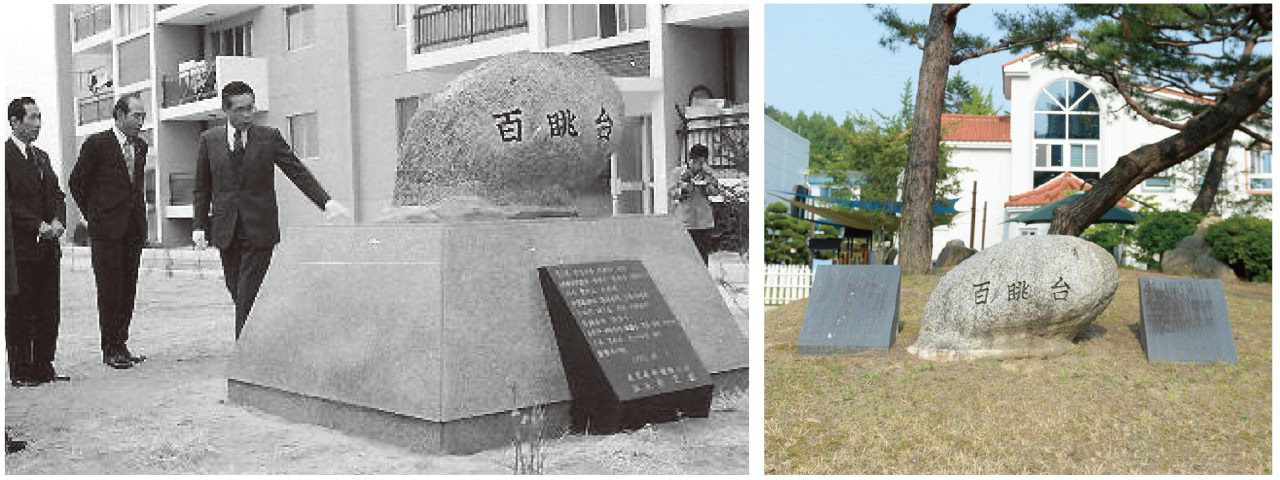
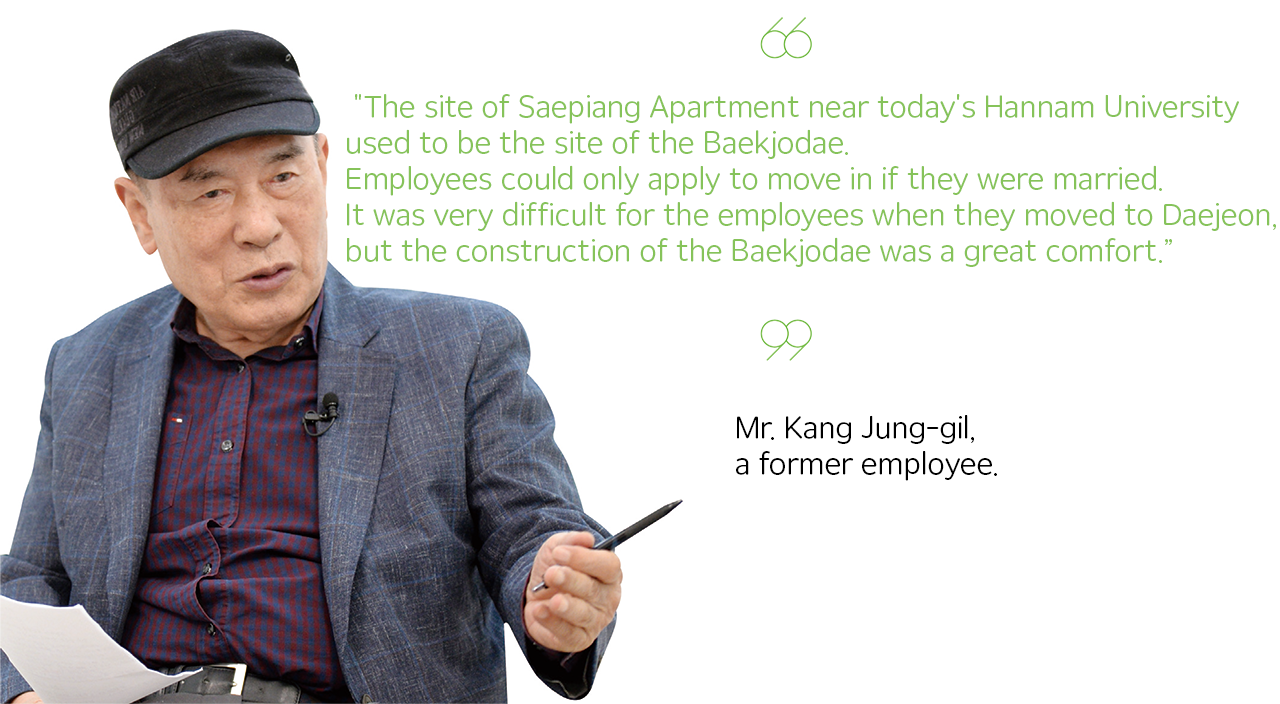


K-water's reputation is as solid as a credit card.
Our corporation earned a reputation as an enviable workplace in Daejeon. During the days when commuter buses were scarce, commuter buses adorned with "Industrial Sites Development Corporation" banners traveled through the city to and from Seoul and Daejeon. The sight of a commuter bus packed with employees turned heads among onlookers. Their salaries were three times higher than those of civil servants, which sparked envy.
The relocation of K-water's headquarters also revitalized the economy in the Daejeon region. With the contract value soaring to hundreds of millions, regional banks clamored to get involved. After finishing work, the employees would gather for informal meals and sometimes head out for drinks. As such, local restaurants also enjoyed a boom. Industrial Sites Development Corporation gained increasing trust over time. K-water had such high reputation that fathers with daughters were eager to have employees of Industrial Sites Development Corporation as their sons-in-law. Industrial Sites Development Corporation was on the cusp of a golden age.


